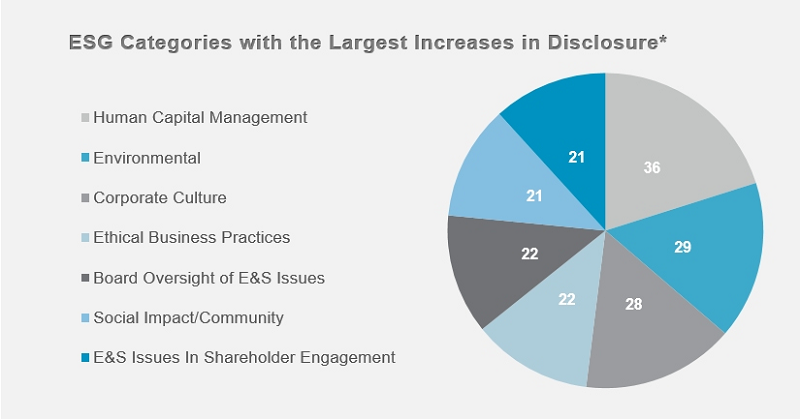What is the ESG bill? The new Environmental, Social, and Governance (ESG) bill is making waves in the investment community. The bill aims to increase transparency and accountability around environmental, social, and governance issues for publicly traded companies.
For investors, this means that they will have access to more information about how companies are managing these important issues. While the ESG bill is still in its early stages, here’s everything you need to know about what is the ESG bill and how it will affect your business if it passes into law.
Table of Contents
What is the ESG Bill?
The ESG bill is a proposed bill that would require all publicly traded companies to disclose their environmental, social, and governance policies.
The bill is still in the early stages, but if it becomes law, it could have a major impact on how companies operate.
The idea behind the bill is that investors need more information about a company’s ESG policies in order to make informed decisions. For example, if a company is polluting the environment, that could have a negative impact on its stock price.
Or, if a company is not doing enough to address social issues, that could also hurt its bottom line. The bill has been endorsed by some major institutional investors including BlackRock and State Street.
If it passes, it would be a major victory for the ESG movement.
Objectives of the ESG Bill
The bill was created in response to the increased awareness of the need to address environmental issues and the importance of sustainable development.
The bill has three main goals:
- Protect the environment.
- Promote sustainable development.
- Reduce greenhouse gas emissions.
(Source)
Key Provisions of the ESG Bill
The key provisions of the ESG Bill are:
- The Bill requires that a company’s board of directors take into account environmental, social, and governance (ESG) factors when making business decisions.
- The Bill requires companies to disclose their ESG policies and practices to shareholders and the public.
- The Bill establishes an independent ESG Task Force to monitor and report on the implementation of the Bill.
- The Bill authorizes the Securities and Exchange Commission (SEC) to take enforcement action against companies that violate the provisions of the Bill.
How Will the ESG Bill Impact Investors?
The ESG bill, which was co-sponsored by Senators Elizabeth Warren and Tammy Baldwin, aims to hold corporations accountable for their environmental, social, and governance practices.
Many investors are already incorporating ESG factors into their investment decision-making process, but the bill would codify these practices into law.
For example, the bill would require companies to disclose their greenhouse gas emissions, workforce diversity statistics, and political spending. This increased transparency would allow investors to make more informed decisions about where to invest their money.
In addition, the bill would create new incentives for companies to improve their ESG practices.
For example, companies that meet certain standards would be eligible for lower interest rates on loans from the federal government.
The bill has been praised by many investor groups and environmental organizations, but it faces stiff opposition from the business community.
It remains to be seen whether the bill will pass Congress, but it is clear that ESG is becoming an increasingly important factor in the world of investing.
Implementation Timeline for the ESG Bill
Here’s a timeline of what to expect in the coming months.
January 2-15: The SEC will issue guidance on how companies can comply with the new rules.
January 16-April 16: Companies will begin filing their first ESG disclosures.
April 17-May 31: The SEC will review filings and provide feedback to companies.
June 1-July 15: Companies will revise their filings as necessary and resubmit them to the SEC.
July 16-August 31: The SEC will review final filings and issue any necessary enforcement actions.
September 1: Companies will begin reporting their ESG data on an ongoing basis.
The new ESG bill is a major piece of legislation that will have a significant impact on the way companies operate. By requiring them to disclose their environmental, social, and governance practices, the bill will create greater transparency and accountability around these important issues.
The bill is also an important step in the fight against climate change, as it will help to track and reduce emissions from businesses.
While the bill is a major step forward, it’s important to remember that its success will depend on how well it’s implemented.
The SEC has a crucial role to play in ensuring that companies comply with the new rules, and it’s important that they provide clear and concise guidance.
Additionally, companies will need to take the time to understand the new requirements and make sure that their disclosures are accurate and complete.
The ESG bill is a landmark piece of legislation that will have a profound impact on the way businesses operate.
With implementation set to begin soon, it’s important to stay informed about the timeline and the process. By doing so, you can ensure that your company is prepared for the new era of ESG disclosure.
FAQs About What Is the ESG Bill
What is the purpose of ESG?
Environmental, social, and governance (ESG) standards are a way for socially conscious investors to screen potential investments based on their ESG behavior. Corporate environmental policies are policies that companies implement that protect the environment.
What is the ESG bill?
On June 16, 2021, the House of Representatives passed landmark legislation titled the ESG Disclosure Simplification Act of 2021 that would require public companies to make ESG disclosures to the Securities and Exchange Commission.
What is the anti-ESG bill?
Some states have proposed legislation that would prevent their state government from investing or doing business in companies that follow certain environmental, social, and governance (ESG) practices.
Conclusion
What is the ESG bill? The new ESG bill is a groundbreaking piece of legislation that will increase transparency and accountability around environmental, social, and governance issues for publicly traded companies.
For investors, this means that they will have access to more information about how companies are managing these important issues. While the ESG bill is still in its early stages, it has the potential to radically change the way we invest in companies and hold them accountable for their actions.
{“@context”:”https:\/\/schema.org”,”@type”:”FAQPage”,”mainEntity”:[{“@type”:”Question”,”name”:”What is the purpose of ESG?”,”acceptedAnswer”:{“@type”:”Answer”,”text”:”
Environmental, social, and governance (ESG) standards are a way for socially conscious investors to screen potential investments based on their ESG behavior. Corporate environmental policies are policies that companies implement that protect the environment. “}},{“@type”:”Question”,”name”:”What is the ESG bill?”,”acceptedAnswer”:{“@type”:”Answer”,”text”:”
On June 16, 2021, the House of Representatives passed landmark legislation titled the ESG Disclosure Simplification Act of 2021 that would require public companies to make ESG disclosures to the Securities and Exchange Commission. “}},{“@type”:”Question”,”name”:”What is the anti-ESG bill?”,”acceptedAnswer”:{“@type”:”Answer”,”text”:”
Some states have proposed legislation that would prevent their state government from investing or doing business in companies that follow certain environmental, social, and governance (ESG) practices. “}}]}






